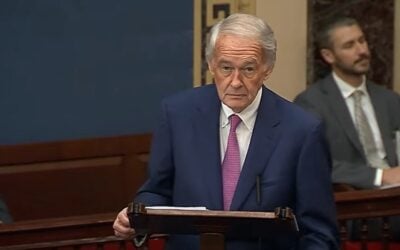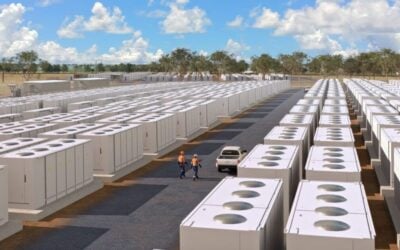
Battery analytics provider TWAICE has partnered with NARDAC to bolster insurance coverage for battery energy storage system (BESS) asset owners, investors and lenders.
TWAICE said NARDAC, an energy and infrastructure specialty insurance broker, will help it provide improved insurance coverage terms by combining real-time analytics with existing passive mitigation strategies.
Enjoy 12 months of exclusive analysis
- Regular insight and analysis of the industry’s biggest developments
- In-depth interviews with the industry’s leading figures
- Annual digital subscription to the PV Tech Power journal
- Discounts on Solar Media’s portfolio of events, in-person and virtual
According to a statement released by the two companies, the energy storage industry has struggled to secure insurance coverage. High-profile incidents of thermal runaway have led insurers to reduce available capital.
Despite recent research by the Electric Power Research Institute (EPRI) and Pacific Northwest National Laboratory (PNNL) showing that BESS failure incident rates dropped 97% between 2018 and 2023, the severity of thermal runaway events remains high, leaving insurers exposed to high-cost claims, TWAICE said.
Stephan Rohr, CEO of TWAICE, stated that the partnership will enable the organisation to “offer tangible financial benefits to the entire energy storage markets” with its technology able to “lower the risk of a safety incident” through its autonomous monitoring and analytics.
Accompanying the announcement was a whitepaper named Thermal Runaway Mitigation for BESS Insurers. The document includes three real-world case studies whereby the use of its software analytics helped identify an issue with the asset alongside a TWAICE recommendation. The projects included were a 57MWh BESS, a 24MWh asset and a 22MWh storage system.
The 22MWh BESS received a ‘critical’ issue with the container suddenly heating up. The whitepaper stated that a “likely thermal runaway event was avoided because the client took action based on TWAICE Analytics recommendations”. TWAICE sent out a critical warning by e-mail each time the threshold of 40°C was reached – lower than the maximum temperature the asset could reach.
The client was recommended to change BMS settings for the system and to review settings in the other systems in the portfolio.
ACCURE discusses insurance innovations
In a similar move in April 2024, German-headquartered provider ACCURE partnered with UK BESS investor-developer Gore Street Energy Storage Fund to deploy cloud-based battery data analytics software to reduce operational issues and the risk of fires caused by thermal runaway events. This was to help businesses leverage analytics solutions to get improved insurance terms.
Last month (28 May) Energy-Storage.news hosted an exclusive webinar with ACCURE, PIB Insurance Brokers and insurance provider HDI Global, examining how data analytics can change the dynamics of insurance for large-scale BESS projects.






